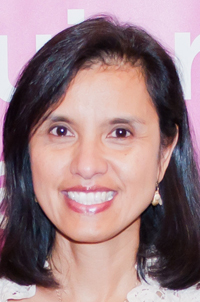
Elisa Del Rosario
By Elisa Del Rosario
Director of Grants, Education, and Advocacy
Komen Puget Sound
For the Northwest Asian Weekly
Every week, 100 Western Washington women are diagnosed with breast cancer, which continues to be the second most frequently diagnosed cancer among women in the United States, after skin cancer. We don’t yet know the exact causes of breast cancer, and many myths about breast cancer continue to exist.
The best way to prevent and survive a breast cancer diagnosis is to be informed.
All women are at risk for breast cancer. Although this disease is more common in women over the age of 40, younger women can and do get breast cancer as well. To reduce risk, here are some things you should know.
If you are over 40 years old, have a mammogram. The American Cancer Society, the National Cancer Institute, and Susan G. Komen all agree that women age 40 and older should have mammograms every 1 to 2 years. Early detection is the key to survival. The five-year relative survival rate for breast cancer, when caught early, is 99 percent. When detected at the most advanced stage, the survival rate drops to 23 percent.
Know what is normal for you. See your health provider right away if you notice a lump, swelling, changes in breast size, or a new pain in one spot that does not go away.
Live a healthy lifestyle. Maintain a healthy weight. Add exercise to your routine. Limit your use of alcohol. Breastfeed, if you can. And, since we live in the Northwest, current studies point to maintaining a normal level of vitamin D as helpful.
However, if you fear that you might be at greater risk for breast cancer because your mother or grandmother had the disease, you should know that most women diagnosed with breast cancer have no family history of the disease. Only 5 to 10 percent of breast cancers are due to inherited genetic mutations.

Other common myths and misperceptions, particularly in the Asian Pacific American community, can be particularly damaging by delaying early detection and treatment, or causing needless depression and isolation among breast cancer patients and survivors. Some of these include:
» A breast cancer diagnosis should be kept quiet because it will bring shame to the family.
» Women with breast cancer should not complain and “put on a happy face.”
» The belief that talking about breast cancer will give it more power and will make it happen.
» Mammograms are not safe, exposing women to dangerous levels of radiation.
» Traditional medicines and healers can replace modern medical treatments.
» Lack of healthcare insurance is shameful.
» One more thing. If you fear that a breast cancer diagnosis is a death sentence, let me tell you that is also not the case. Today, there are nearly 3 million breast cancer survivors living in the United States. I am one of them. If you have ever seen our Race for the Cure Survivor’s Parade, you would see many survivors living happy and full lives 30 years after their diagnosis or longer.
Above all, the best advice I can give is to ask you to take an active role in your own breast health. And if you are over 40 years old, and have yet to be been screened for breast cancer, do it today. There is no time to lose. (end)
Elisa Del Rosario can be reached at info@nwasianweekly.com.




i want to know my frieds breast has a knot. how much possible that it will be cancer